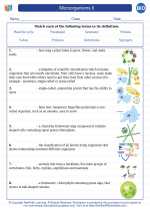Space
Space is the vast, seemingly infinite expanse that exists beyond the Earth's atmosphere. It is a subject of great interest and curiosity for scientists, astronomers, and the general public. The study of space encompasses a wide range of topics including the structure of the universe, celestial bodies such as stars and planets, and the exploration of outer space.
Key Concepts in Space
- Universe: The universe is everything that exists, including all matter, energy, planets, stars, galaxies, and the space between them.
- Galaxies: These are vast systems of stars, gas, and dust bound together by gravity. The Milky Way is the galaxy to which our solar system belongs.
- Stars: These are massive, luminous spheres of plasma held together by gravity. They are the fundamental building blocks of galaxies.
- Planets: These are celestial bodies that orbit around a star. They vary in size, composition, and atmosphere.
- Space Exploration: This involves the investigation of outer space using manned and unmanned spacecraft. It aims to learn more about the universe and potentially establish a human presence beyond Earth.
Studying Space
To understand the vastness of space and the objects it contains, it's important to study various fields such as astronomy, astrophysics, cosmology, and space exploration. Here are some key topics to focus on when studying space:
- Understanding the Scale of the Universe
- Exploring the Properties of Stars and Planets
- Investigating the Structure of Galaxies
- Learning About the History and Future of Space Exploration
- Examining the Theories of Cosmology and the Origin of the Universe
Study Guide for Space
To effectively study space, it is important to engage with various resources and activities. Here's a study guide to help you navigate the topic:
- Read Astronomy Books: Explore books that cover topics such as the solar system, stars, galaxies, and the history of space exploration.
- Watch Documentaries and Videos: There are many informative documentaries and videos that provide visual explanations of space phenomena and exploration missions.
- Engage in Stargazing: Spend time observing the night sky to gain a firsthand appreciation of celestial bodies and their movements.
- Explore Online Resources: Visit reputable websites and online platforms that offer educational materials, simulations, and interactive tools related to space.
- Participate in Space-related Events: Attend lectures, exhibitions, and events organized by observatories, planetariums, and space agencies to stay updated on the latest discoveries and advancements in space science.
By immersing yourself in these activities and resources, you can develop a comprehensive understanding of space and its wonders.
.◂Biology Worksheets and Study Guides High School. Microorganisms II
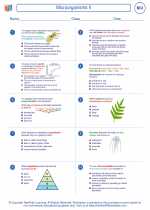
 Worksheet/Answer key
Worksheet/Answer key
 Worksheet/Answer key
Worksheet/Answer key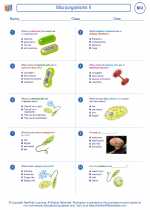
 Vocabulary/Answer key
Vocabulary/Answer key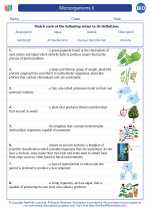
 Vocabulary/Answer key
Vocabulary/Answer key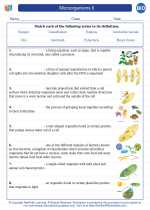
 Vocabulary/Answer key
Vocabulary/Answer key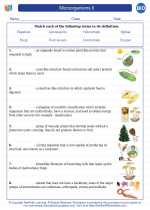
 Vocabulary/Answer key
Vocabulary/Answer key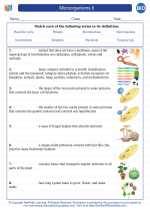
 Vocabulary/Answer key
Vocabulary/Answer key